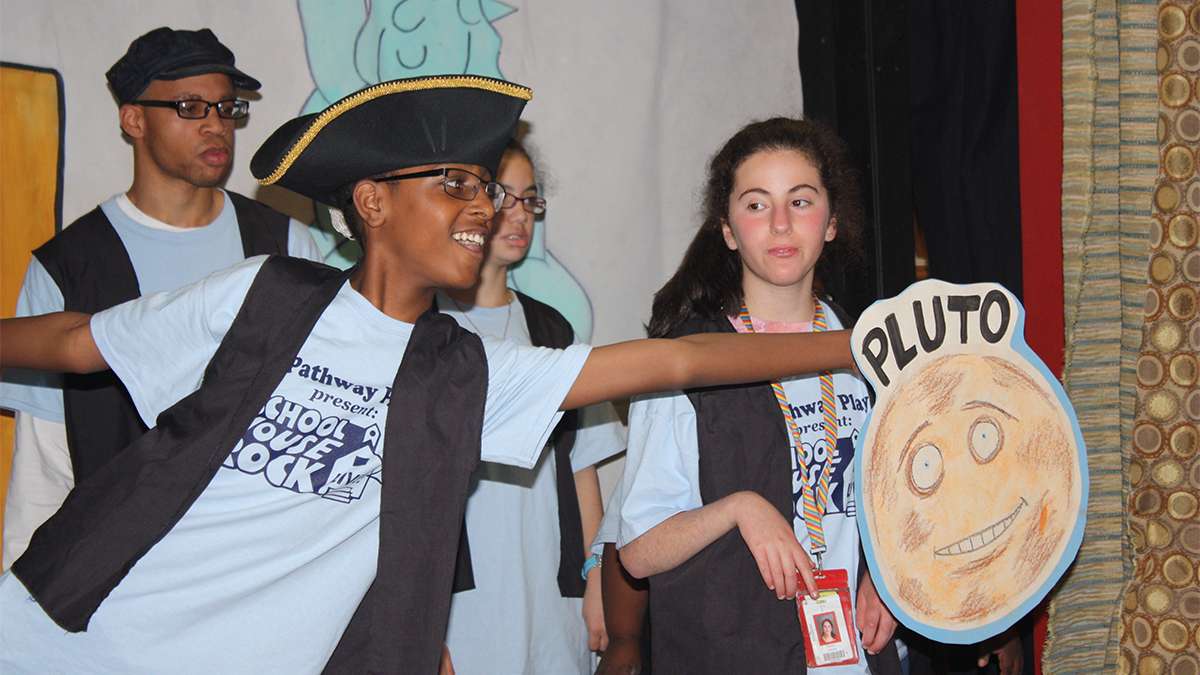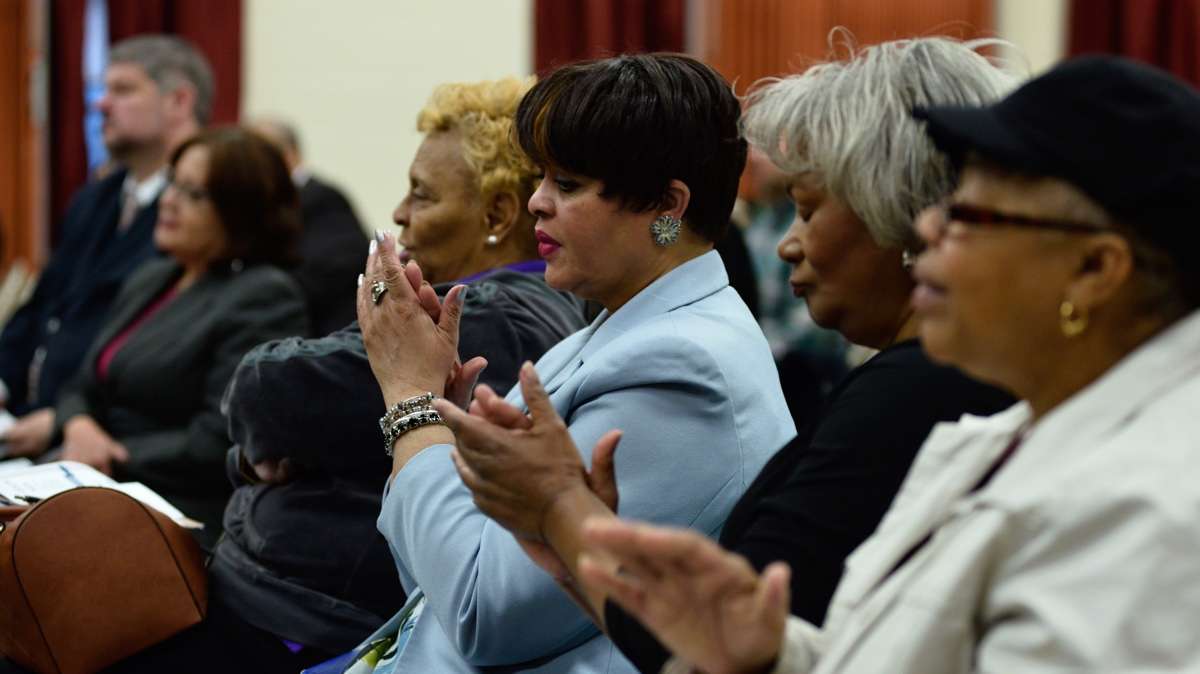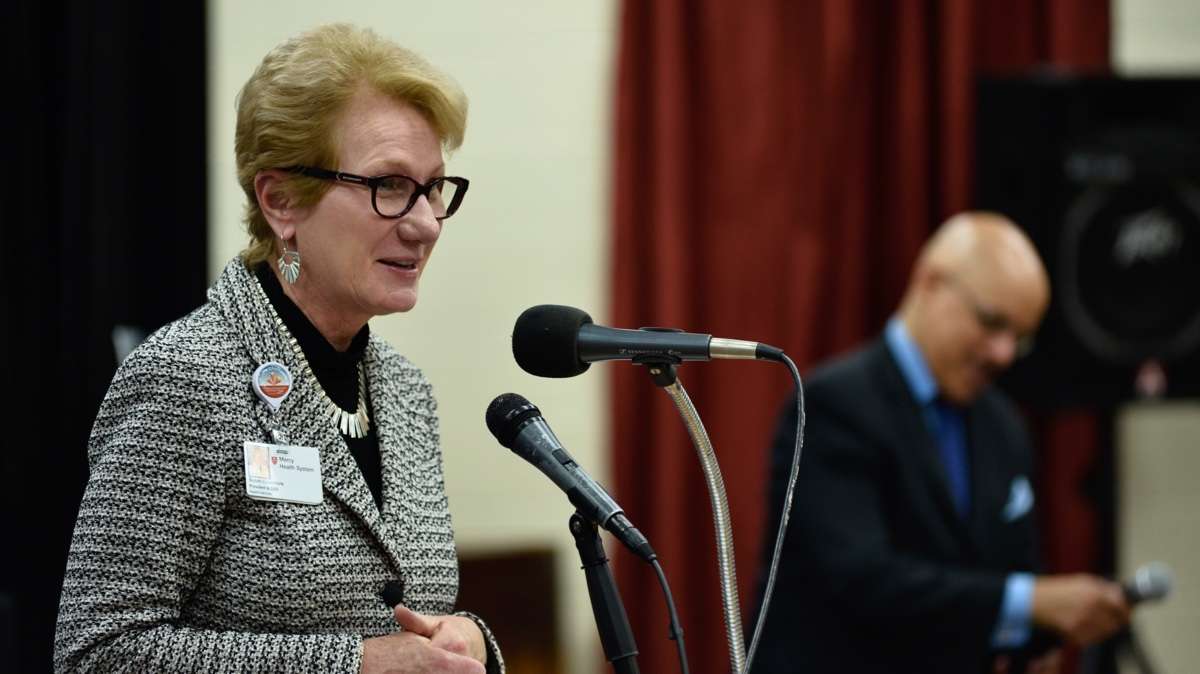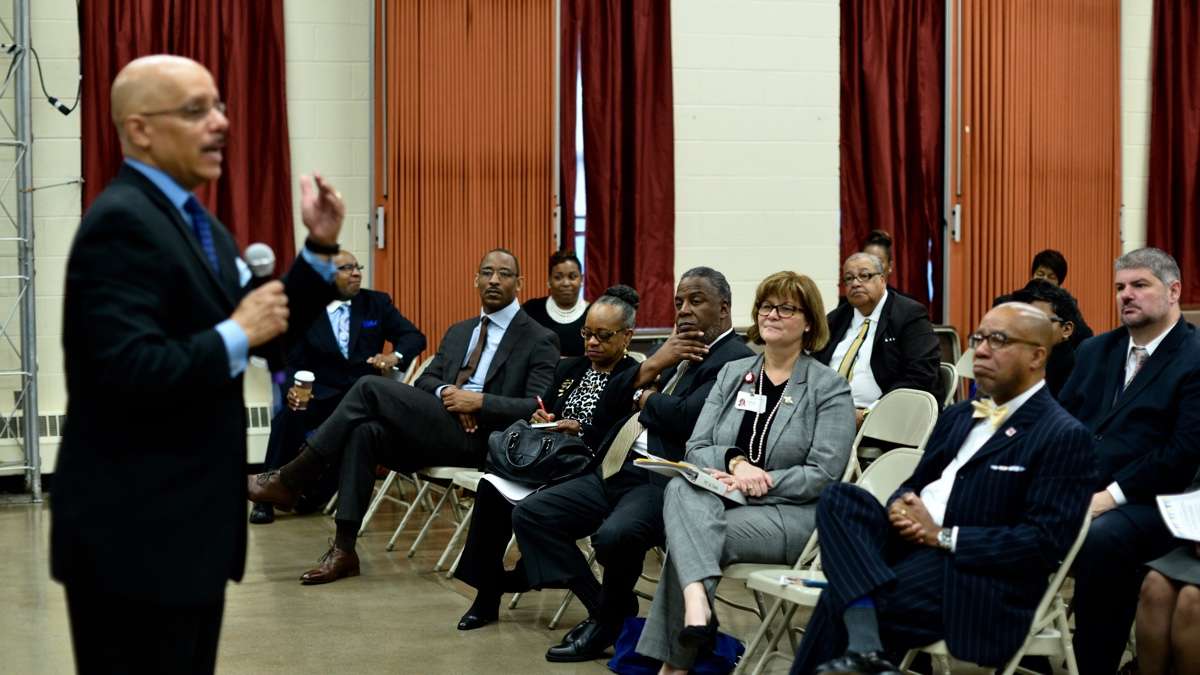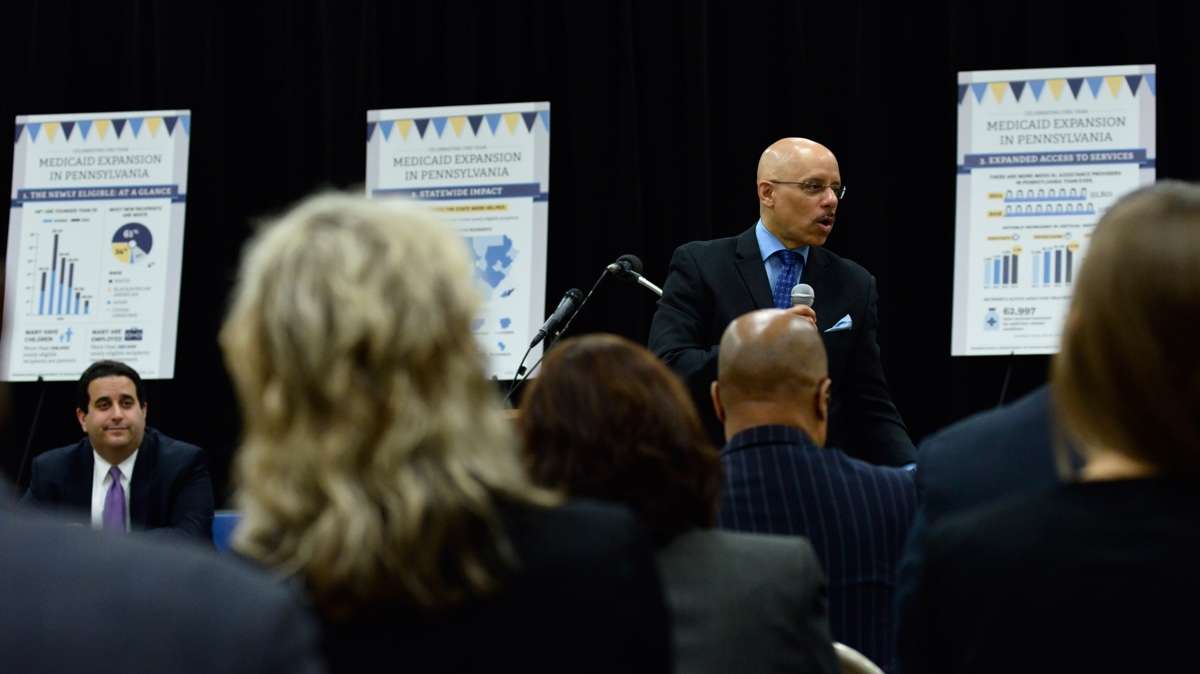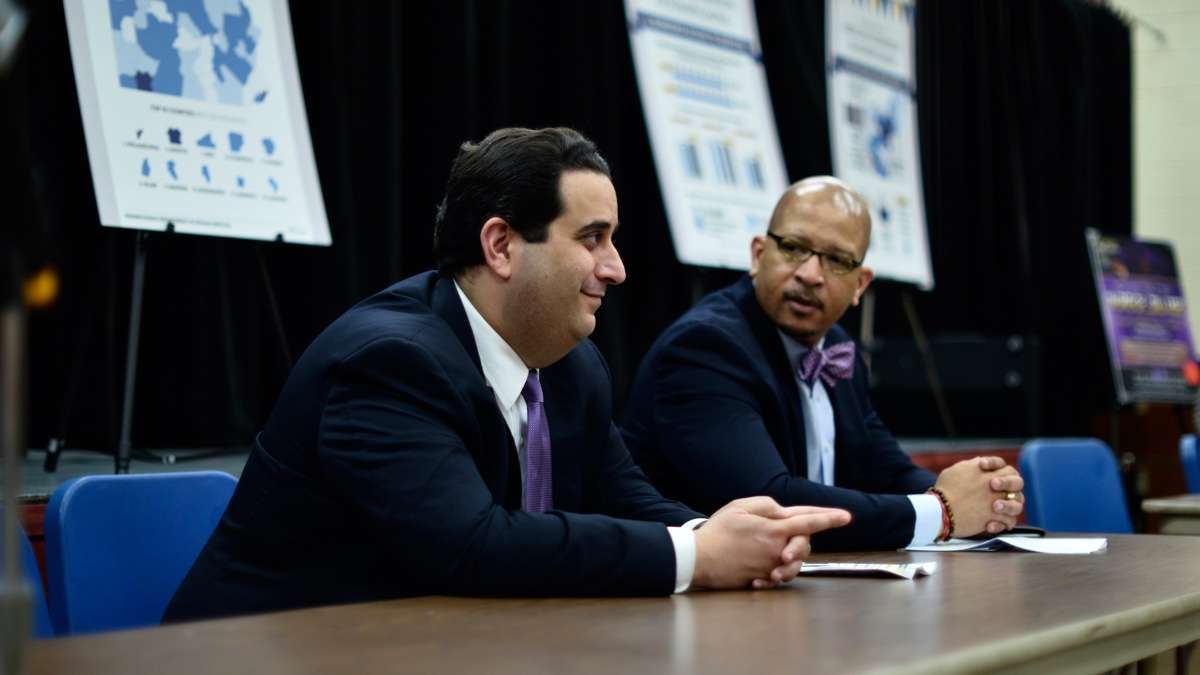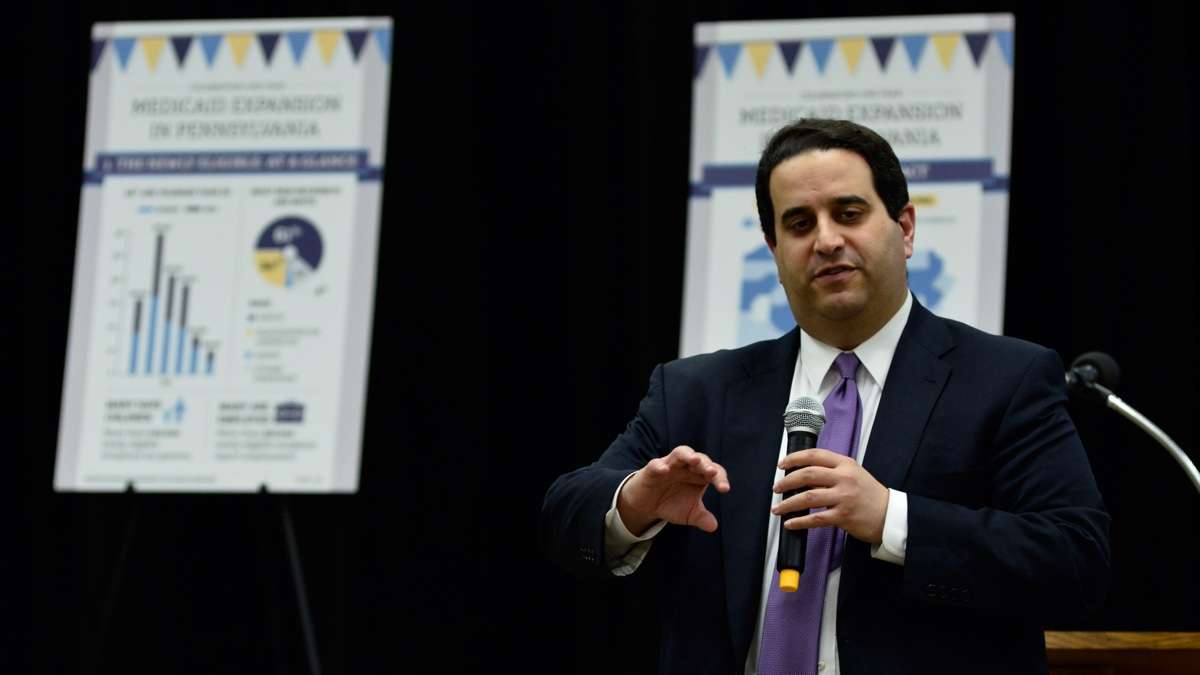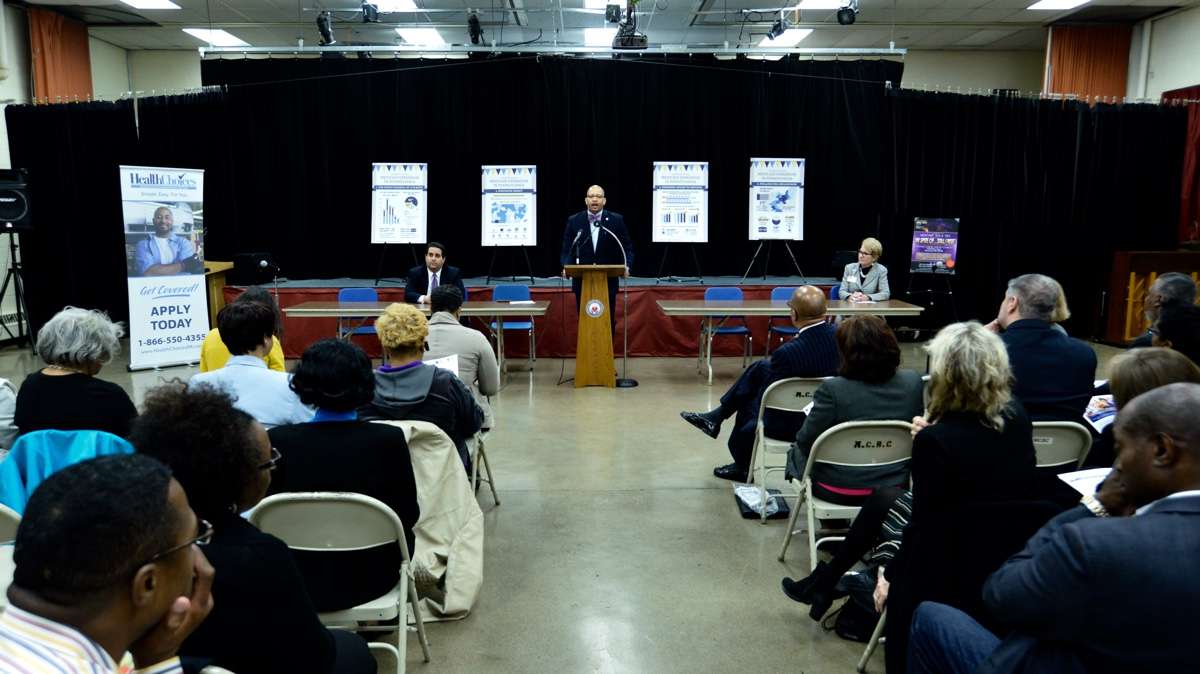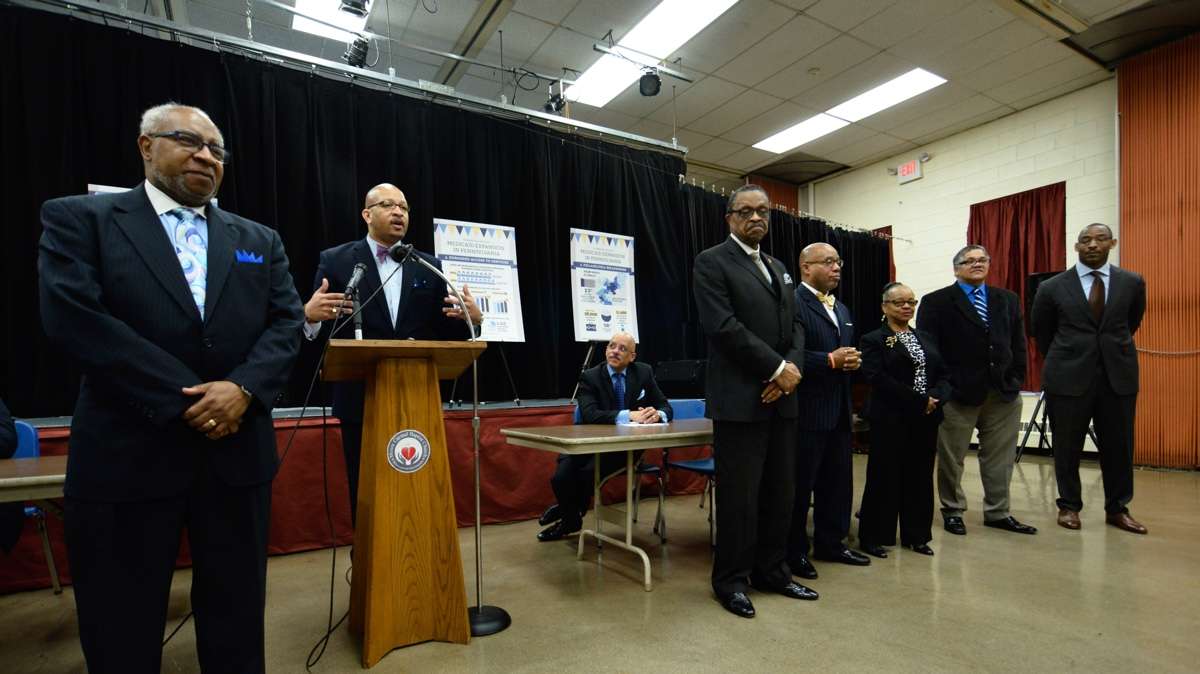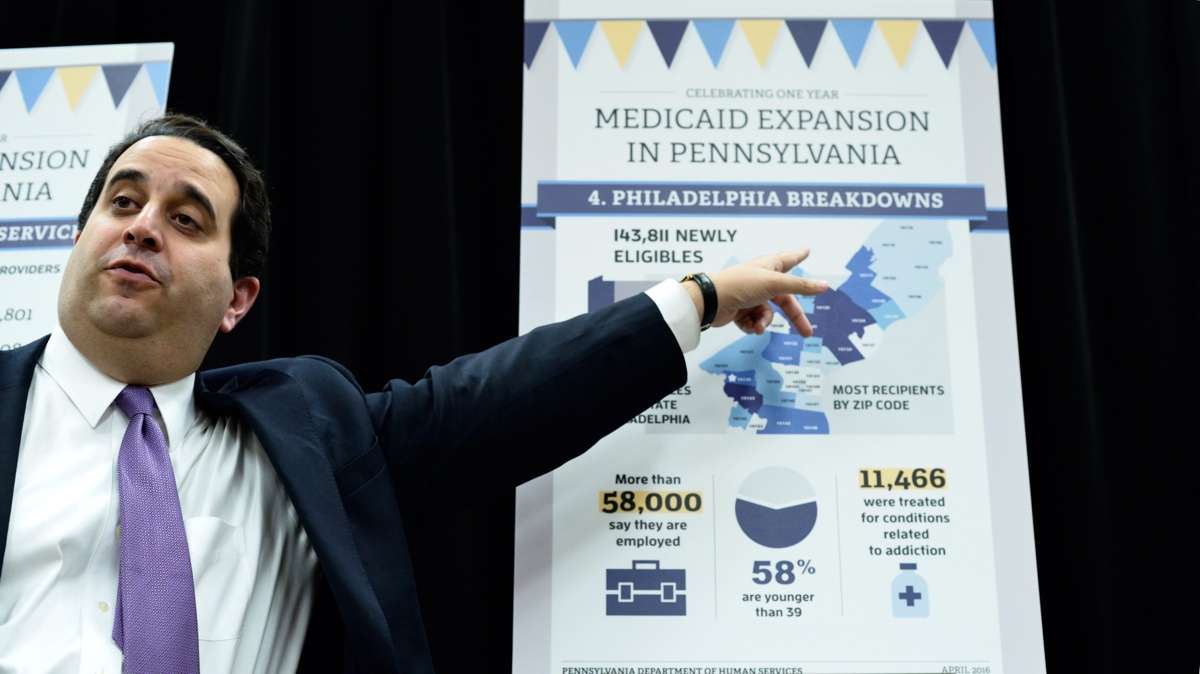One year in, Pennsylvania Medicaid expansion prompts celebration and new outreach
One year after Pennsylvania Governor Tom Wolf switched the state over to a traditional Medicaid expansion, some 625,000 residents have enrolled. It marks a dramatic reduction in the state’s uninsured population, cutting the percentage nearly in half from 14 percent, according to state estimates.
Area health leaders are thrilled.
“It’s transformed Pennsylvania, and what it means for folks in Pennsylvania in terms of their health care,” said state Human Services Secretary Ted Dallas during a stop at Mount Carmel Baptist Church in West Philadelphia Friday.
As Dallas spoke to a room peppered with local officials, clergy and health leaders, he pointed to charts and maps breaking down the impact: in 16 counties including Philadelphia, for example, more than 10,000 newly eligible people have enrolled; across the state, nearly half of new enrollees are employed, with 46 percent overall younger than 35.
Back to Philadelphia, meanwhile, 11,466 of the 143,811 newly eligible people were treated for conditions related to addiction. Statewide, the number of participating Medicaid providers is up from 92,801 in 2014 to 108,776 in 2016.
Mediciaid is a state program run in partnership with the federal government. It offers health benefits to very low income residents and those who have disabilities. Eligibility and benefit design varies by the state, though the federal government mandates certain baseline coverage.
Expanding Medicaid with enhanced federal funding became optional under the Affordable Care Act in 2014.
For states that participate, like Pennsylvania, even people who don’t have children and earn up to $16,200 a year, or 138 percent of the federal poverty level, can qualify. That also means a family of four with an income of up to about $30,000 is eligible.
During a question and answer session following Dallas’ presentation, some asked about the lack of adult dental coverage under Medicaid, what to do about people’s fears of signing up if their taxes aren’t up to date, whether participating providers are reflective of Philadelphia’s diverse communities, and how to get more information to older adults who don’t yet qualify for Medicare, the federal health program for seniors.
Some background
Technically, Medicaid eligibility in Pennsylvania expanded more than a year ago, in January of 2015, when then Republican Gov. Tom Corbett’s ‘Healthy PA’ plan kicked in.
It was an executive move, with the Republican-led statehouse rejecting legislation for an expansion. Corbett, meanwhile, faced sharp criticism from traditional expansion proponents because his plan included different categories of coverage, depending on an enrollee’s income and health status.
When Gov. Wolf took office, he dismantled Health PA and moved ahead with a traditional expansion.
Either way, expansions have been politically contentious, just like the Affordable Care Act itself.
“There are people who don’t want this community to have this program,” said state Sen. Vincent Hughes, a Democrat representing the seventh district, during Friday’s event. “It really is something that now that we’ve got it, it is our job to make it [medicaid enrollment] happen…We’ve got to take advantage of it.”
Most Democratic-led states have opted for an expansion, while most Republican-led states have either rejected it or applied for federal waivers to create some kind of alternative. That’s what Corbett did. (New Jersey, where Chris Christie is governor, is an exception. He opted for full Medicaid expansion, citing money the Garden State would have left “on the table.”)
Putting aside ideological and fiscal divides over expanding a public benefits program, the financial incentives for states to move forward with some form of an expansion have been huge.
Besides education, health care is generally the largest part of a state budget. But under the Affordable Care Act, the federal government is mostly subsidizing states’ expansions. That’s a stark contrast to how Medicaid is typically financed, with the federal government paying about 60 percent of the cost, according to the Center on Budget and Policy Priorities, and the state covering the rest.
For states that participate in an expansion, the federal government is picking up 100 percent of the tab for newly eligible individuals through the end of FY2016, and is then slowly reducing its share to 90 percent of the cost by 2020.
Dallas says when you do the math, bringing more people onto Medicaid roles with this enhanced funding is actually saving Pennsylvania money.
“The state budget has saved over half a billion dollars or over $500 million in savings from folks that were paid for at the state level and are now being paid for at the federal level,” said Dallas, referring to people who fit into that newly expanded medicaid category based on income, but had already been enrolled in Medicaid through special state categories often related to certain health and disability circumstances.
He suspects state charity care (hospitals caring for the uninsured) will also go down as more people gain coverage.
A new faith-based challenge to find those who’ve fallen through the cracks
Despite the high enrollment, which technically has surpassed the initial estimates of how many Pennsylvanians would even be newly eligible under a Medicaid expansion, Secretary Dallas and others worry people are still falling through the cracks.
So, the Department of Human Services recently turned to local faith-based communities for help.
Rev. Donald D. Moore responded during Friday’s medicaid event, held at his church in West Philly. Moore has a congregation that’s 1,500 strong, but he wonders if some uninsured members are eligible now for Medicaid but don’t know it.
“Even on today, as we celebrate this one year [of expanded medicaid], thousands of Pennsylvanians remain uninsured,” said Moore.
Enter the ‘Spirit Challenge’: a race to be the first congregation where every member is insured.
“I’m going to say that Mount Carmel will be the first church to have 100 percent enrollment,” Moore said to fellow clergy members joining him for the part-kickoff, part-medicaid celebration. “Your goal and your job is to make sure that you beat us to the punch, and if you do we will applaud you all collectively.” Amen?”
“Amen!” several responded.
When asked how many of his members are currently uninsured, Moore said he didn’t know. It’s not something that comes up in church, he said. The plan now is to hold enrollment events after services and offer members more resources.
The state has contracted with the Mendoza Group to help with that.
About 10 churches have signed on to the ‘Spirit Challenge” so far, which state leaders think is the first challenge of its kind in the country.
Pastor Mike Robertson of Greater Enon Missionary Baptist Church in North Philly represents one of them. Looking over one of Dallas’ charts breaking down Mediciaid enrollment by Philly zip code, Robertson noted that his area contains one of the largest percentages of residents who stand to benefit from the expansion.
“Even though we’re looking inward at our church to sign up our congregants, this is also a community effort, this is truly a communal effort,” he said.
Moore agreed.
“If we get half — if we don’t get 100 percent — if we get one [newly insured member], and we can change the generational health from the next generation, then we’ve done our job.” he said.
Faith groups have long taken a lead on community health initiatives, from heart screenings to HIV prevention to enrollment assistance in the Affordable Care Act’s health care marketplace. Moore said this latest effort is a natural fit.
“We have a job and a role and a responsibility, because historically in the African American community in particular, the black church has always been the cog in the wheel that gets results for our community,” said Moore. “I think it is paramount if we’re going to serve our community, serve our members inside the church walls, that we have a mandate and an obligation to meet the challenges that face our members and our community.”
This story is part of a reporting partnership that includes WHYY, NPR and Kaiser Health News.
WHYY is your source for fact-based, in-depth journalism and information. As a nonprofit organization, we rely on financial support from readers like you. Please give today.



